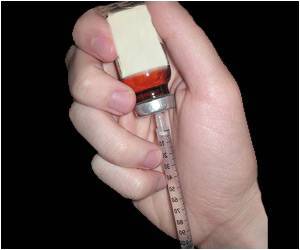Researchers have revealed that FDA-approved cancer drug Sunitinib may have adverse effects on the heart.
Researchers at Children’s Hospital Boston, Dana-Farber Cancer Institute (Boston), and Thomas Jefferson University (Philadelphia) have revealed that FDA-approved cancer drug Sunitinib may have adverse effects on the heart.
The study led by Ming Hui Chen, MD, MMSc, a cardiologist at Children’s who specializes in the cardiac health of cancer patients found that the drug may lead to the risk for heart failure, heat attacks and hypertension.Sunitinib is one of several new “smart” cancer drugs called tyrosine kinase inhibitors that target specific signalling molecules inside cancer cells that aid cancer spread.
The researchers examined 75 adult patients with imatinib-resistant, gastrointestinal stromal tumor (GIST) receiving multiple cycles of sunitinib in a phase I/II trial at Dana-Farber.
The findings reported that out of the 75, six developed symptoms consistent with moderate-to-severe congestive heart failure, and two had heart attacks.
Patients with pre-existing coronary artery disease were more likely to develop cardiac problems. Nineteen percent of the 36 patients receiving the FDA-approved dose had a reduction in left ventricular ejection fraction, a measure of the heart’s pumping ability and 35 of 75 developed hypertension.
Chen said that hypertension is a common side effect of cancer drugs but early detection of the side effects can help in cancer therapy over the long-term.
Advertisement
“Early identification of cardiac side effects is an important part of keeping patients on life-saving cancer therapy over the long-term.
The sunitinib study highlights potential concerns with agents that are ‘multi-targeted and inhibit multiple factors involved in cancer progression.
Some of these factors may also play important roles in maintenance of proper heart function inhibition by cancer drugs could have adverse effects on the heart.
The research is published in December 15 issue of The Lancet.
Source-ANI
LIN/P











